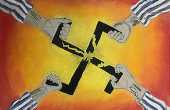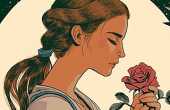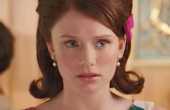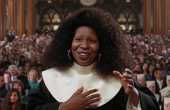Stephanie M.
I'm a content writer and novelist who loves books, writing, theater, and my cat. I have published two novels and traveled to London and Paris.
Columnist III
- Plebian Penman
- Common Writer
- Aristocratic Author
- Noble Scribe
- Lurker
- Pssst
- Hand Raiser
- Vocal
- Outspoken
- Extrovert
- Center of Attention
- Forms a Crowd
- Sharp-Eyed Citizen
- Town Watch
- Detective Deskman
- Penman Patrol
- Forensic Fiend
- Motivational Columnist
- Motherboard
- Composition
- Literary Art
- Referencer
- Actor
- Successful Pilot
- Animator
- Animaniac
- Well Read
- Chaptered Mind
- Art Collector
- Article of the Month
- ?
- Articles
40 - Featured
36 - Comments
711
- Ext. Comments
338 - Processed
191 - Revisions
188
- Topics
81 - Topics Taken
5 - Notes
248
- Topics Proc.
81 - Topics Rev.
19
- Points
13322 - Rank
4 - Score
9163
Latest Articles
Latest Topics
The Best Short Stories and Short Story ConventionsShort stories form the backbone of almost any literature and creative writing class, either because students read or write them. Either way, they are analyzed–sometimes to the point of death, but we hope today's literature students and teachers are moving past such tendencies. Of the myriad of short stories that exist, classic and contemporary, what are some that should belong in any canon? In particular, discuss contemporary stories or collections not getting attention right now, that should be. To go along with this, what are some universal themes, character traits, or tropes that make a short story "work" better than it would if it were written in longer form? Do some topics or themes lend themselves better to short form, and why?
|
Pending | Creation Stories and Creative WorldbuildingEvery culture has some explanation for the creation of the world and its people. Some of these stories are tied to a religious faith, while others are more cultural or scientific in nature (i.e., the Big Bang theory). However, every creation story gives us a foundation on which to build a view of the world. Writers need these foundations as well, particularly if they're coming up with completely new worlds and systems. This is common practice in genres like fantasy, sci-fi, and dystopian, to name a few. Examine how writers might use existing creation stories as templates or guidelines for their own worldbuilding. Discuss, for example, how creation stories can be useful whether a writer is using a religious system or not. What was created or prioritized first in a given writer's world, and why? How are new things created, or are they? How is the creation or cessation of life handled? Are there anathemas, and what are those? Has the writer's world undergone a major shift like original sin?
|
Reading Anne Frank at a New Stage of COVIDWhen the COVID-19 pandemic began, a handful of writers found solace and inspiration in Anne Frank. PJ Grisar of the Jewish Daily Forward, essayist Leigh Stein, and others wrote about how "the world [looked] to Anne Frank" during the first wave of the crisis (Grisar) and how her experiences contrasted with and mirrored our own. Two years later, Anne Frank and her "mirror" have not gone away. Some continue looking to her for inspiration, while others, such as Robert F. Kennedy Jr., compare living as an unvaccinated American to living as a Holocaust victim, thereby stirring controversy and anger. But no matter how Anne Frank fits into the pandemic landscape, she remains a major part of it for many people. How do you think readings and discussions of Anne Frank's diary will change as the pandemic enters a new stage and hopefully ends soon? Why do you think she resonates, even though comparing our situation to the Holocaust and Nazi Germany is rightfully offensive? Are there examples of classic or current fiction that could be read alongside Anne Frank as a study of the pandemic, lockdowns, and similar situations? Discuss.
|
The Impact of the Princess Rap BattleSeveral years ago, YouTuber Whitney Avalon gave us a mashup not many people were expecting–Disney princesses competing against each other in rap battles. Some princesses, like Cinderella and Belle, competed alone, while others, like Rapunzel and Anna, competed as couples with their respective princes. Over time, Avalon expanded to Disney and non-Disney villains (Queen of Hearts vs. Wicked Witch of the West), and non-Disney heroines (Dorothy vs. Alice). The result was a series of memorable, humorous, and surprising videos that showed princesses and heroines in new lights and arguably made the rap battle and surrounding culture accessible to broader audiences. Until Whitney Avalon, it's fairly unlikely that most of us, this writer included, ever pictured majority-white, extremely feminine princesses and heroines spitting clever, deep-cutting hip-hop lyrics. Discuss the impact and influence of the Princess Rap Battles, especially when compared to other battles of their type (ex.: Epic Rap Battles of History). Do you think these battles make rap and hip-hop more accessible to women, Disney fans, and other such audience, or does the term Princess Rap Battle pigeonhole them? It's been awhile since the last Princess Rap Battle; what might Whitney Avalon do to improve on the content and bring new audiences in? What do these battles say about the structure and poetry of rap, hip-hop, and battles in general? |
Are Readers Burned Out on YA Dystopia?Recently, talk among book enthusiasts has circulated that YA dystopia has burned out. The genre is certainly huge, but whether it's burned out, cliched, or tired in any way depends on whose books you read. Are there certain authors who give YA dystopia a burned out feel? Are there authors, or characters, who have brought fresh situations or themes to the genre? And if the genre is burned out right now, how might it be "revived?" Discuss.
|
Published | Alternatives to Microtransactions in Games and AppsCell phones are ubiquitous these days, as are phone-based games and apps. These activities are colorful, fun, and addictive–if you have the money for an addiction, that is. Most if not all cell phone games, as well as some apps such as Lumosity or adult coloring books, are free but have in-app purchases. The in-app purchases are usually tied to premium content or the ability to play the "full" game. For instance, in Jeopardy World Tour, you can play rounds for "free," as long as you have virtual cash. To increase virtual cash, you can wait more than 24 hours for your bank to build, or you can purchase virtual premium currency with actual money. Even the best-intentioned game/app users end up engaging in microtransactions more than they mean to. In many online worlds, people who spend a lot of real money actually have a nickname; they're called "whales." Whales or not, most players complain about microtransactions, but admit they don't know an alternative. Could there, or should there, be alternatives to microtransactions? If yes, what might those be? Are there currently apps or games that don't depend on microtransactions, and if yes, what makes them successful? How are these games or apps able to "survive" without monetary microtransactions? Examine and discuss. |
Critic vs. Chick: Who Does Nostalgia Better?Circa 2008, YouTube gained a new channel and star in Nostalgia Critic, AKA Doug Walker. Going by that name and the hfaandle ThatGuyWiththeGlasses, Doug Walker gave viewers scathing, humorous reviews of nostalgic movies, shows, and commercials from the '80s-'90s. "I remember it so you don't have to," he begins almost all of his (early) videos. A while after the Nostalgia Critic came to fame, he held a contest to find a female counterpart. The result was the stardom of Lindsey Ellis, Nostalgia Chick. As her name implies, Nostalgia Chick covers content the Critic doesn't, mostly content aimed at a female base. She tends to focus her reviews on feminist criticism and the portrayal of female characters. However, both critics' reams of views indicate their fans are not necessarily divided by sex or gender. Both sexes can enjoy both critics, so what, other than feminist or non-feminist content, distinguishes the two? Is one critic inherently "better" than the other, and if yes, why? Have changes in the videos' formats, such as Critic and Chick appearing together or with other characters, changed the conversation about their content? What kind of viewers do Chick and Critic cater to, regardless of gender (i.e., would you recommend a new viewer go to one person or the other for a certain type or "tone" of content)?
|
An Examination of Classic RetellingsFrom reams of fairytale retellings, to Pride and Prejudice and Zombies, from Meg and Jo to Circe, the literary world bursts with retellings of classic novels. The smorgasbord of material grows every day, giving rise to multifaceted questions. What sets one retelling of a classic apart from another (why, for instance, might someone choose the Little Women retelling So Many Beginnings over Meg and Jo, and its companion novel, Beth and Amy)? Do some classics lend themselves to retellings better than others? Perhaps most intriguing of all, what is the benefit, for writers and readers, of retelling classics and/or reshaping them for a current audience? Once these classics are reshaped or retold, are they classics any longer? Discuss.
|
Latest Comments
| The Horror Genre's Ableist Underbelly | |
Thank you for exploring this topic. My manifestation of cerebral palsy affects my hands in such a way that I cannot draw. Most people refuse to believe this because I can feed myself, brush my teeth, and dress myself, and my clothes are not backward. There is not food or toothpaste smeared all over me. But the truth is, unless I tell you what something is supposed to be, you are *not* going to recognize it. My handwriting is the same; it’s an odd mishmash of uppercase and lowercase letters that don’t proceed in a straight line, ever (so I type). Most people are supportive when I talk about how I want to use AI to create art/illustrate the characters I’ve created and longed to “see” for years. But I do have those few who turn it into a discussion of, “Yeah, but AI is gonna take over the world/AI is evil.” I usually roll with it. After all, I remind them, this is what people initially said about the Internet, and most of us use that without evil intent. I would be lying though, if I said the moral and ethical implications didn’t bother me. Moreover, I still find AI’s limitations frustrating at times (like, I’ll input a character’s info and get something back. I’ll think, “No, they look like a model!” Or, “No, they look like AI!” Which, yeah, they *are* AI, but… Ah, well. I guess all any of us can do is keep working on it. Thanks again! | Can Art-ficial Be Art?: The Human Heart Behind the Machine |
Lovely work! I had never heard of Gwen Harwood before, but her sonnets are clever, beautiful, and piercing. They remind me of a course I once took called Women in Literature/Women in Religion (it was called a “linked” course, double the length of a standard one. Everyone at my college had to take one, so several departments would offer them in any given semester). Harwood would’ve fit right in. | The Quietly Subversive Poems of Gwen Harwood |
Yeah, I think I remember hearing about the conflict between Walden and Disney over the themes. And yes, I remember my church and several others encouraging families to go see it. My family and I went with some friends of ours the weekend after the premiere. We froze our buns off, but it was so much fun. I was in college, and I still cried over Aslan. | The Rise and Fall of the Narnia Film Series |
Exactly! I loved LWW. Now of course, I was a first-semester college sophomore then, BUT I was also taking a whole class on C.S. Lewis (religion major). We didn’t read all the Narnia books, but we read LWW together. So, I was really into it. But then Prince Caspian came out, I rented it, and I was like, “What in heck is this? I am so bored!” I tried it again later, thinking I just didn’t “get it” before, but, no. It was just battle scene after battle scene, no dialogue, flat characters. Dawn Treader was better, but not much. | The Rise and Fall of the Narnia Film Series |
Hmmm. Or until somebody invents a DeLorean that takes us to, what would it be by now, 20-50-something? Paging Doc Brown… | The Rise and Fall of the Narnia Film Series |
Yeah, he’s probably rolling in his grave over the whole thing. Then again, if you go by the definition of allegory…sorry Jack, but you kind of went that route whether you meant to or not. | The Rise and Fall of the Narnia Film Series |
I tend to agree. LWW is great. Prince Caspian, I hate to say, I found deadly boring. Dawn Treader…eh… And while I also hate to think of losing Magician’s Nephew or The Horse and His Boy, I see your point. They fit as far as the books, but if you’re going to adapt them into a film or TV series, it’s hard to tell where and how they would mesh with the rest of the stories. | The Rise and Fall of the Narnia Film Series |








I am so glad to see this article getting such love. I’m thrilled, too, that it’s gotten people thinking about horror in a new way. I myself am not a horror fan (and the ableism is a big reason why), but this article just called to be written. I’d do it all over again just to see this response. Thanks so much.